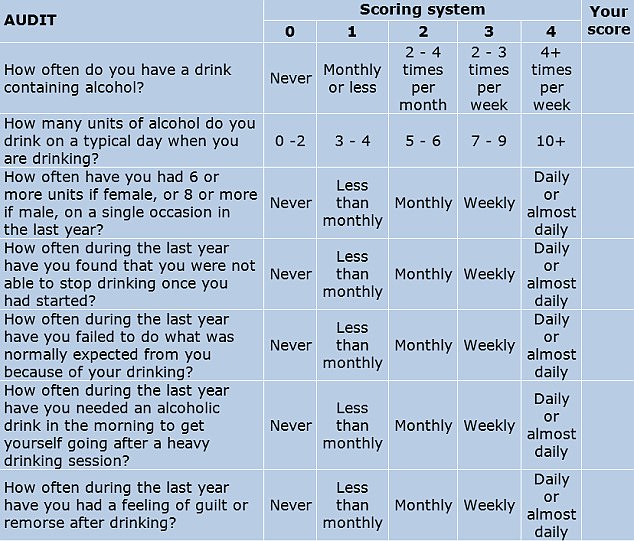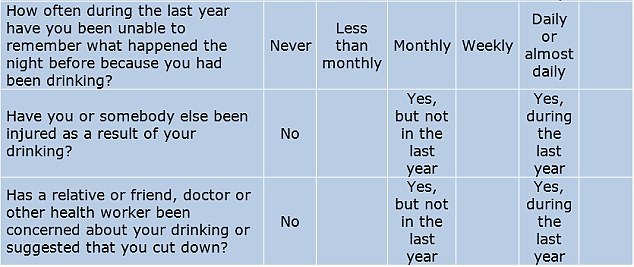What does Canada’s ‘extreme’ alcohol guidance mean? How many units are in YOUR favourite drinks?
>
The best booze quiz – beer none: As experts call for UK to adopt Canada’s ‘extreme’ two drinks a week advice, guess how many units are in a pint of lager, glass of wine and shot of tequila
Brits should also be advised to limit their alcohol intake to just two bottles of beer each week, health chiefs controversially claimed this week.
But do you know how many units are in your favourite drinks?
From a pint of lager to a shot of tequila, MailOnline’s quiz lets you guess just how boozy 15 different beverages are.
SCROLL TO THE BOTTOM TO SEE THE ANSWERS
MailOnline has created a quiz, allowing you to guess just how many units are in 15 different alcoholic drinks favoured by Brits
The call for British drinking advice to be amended follows advice introduced this week in Canada, where health chiefs have explicitly stated that zero booze is the only truly safe amount.
Officials said for anyone choosing to defy the strict guidance, consuming up to two standard drinks is ‘low risk’.
The actual guidelines, devised by the Canadian Centre on Substance Use and Addiction (CCSA), called for a dramatic reduction in alcohol consumption.
Drinking three to six glasses a week gives people a ‘moderate risk’ of suffering from health conditions.
Consuming seven or more drinks each week was putting people at ‘increasingly high risk’, the group said.
Dr Richard Piper, chief executive of the Alcohol Change UK charity, told MailOnline that the guidelines were ‘something we should definitely adopt’.
Meanwhile, Dr Katherine Severi, chief executive at the Institute of Alcohol Studies, said that Canada’s new guidelines ‘may seem very low and unnecessarily strict, but it is simply an assessment of the best quality evidence’.
Britons are urged not to drink more than 14 units a week on a regular basis — the equivalent of six pints of lager or 10 small glasses of wine.
The NHS also advises spreading drinking over three or more days to avoid bingeing.
The Centers for Disease Control and Prevention advises Americans to not drink more than 14 small cans of beer a week for men and seven small glasses of wine for women.
Leading experts have rowed about the harms of moderate drinking for decades.
Studies have suggested that a glass of wine or pint of beer a day can stave off a host of illnesses. While others have argued that even light drinking is dangerous.
Scientists across the board, however, agree that excessive alcohol consumption can permanently damage the liver and cause an array of cancers and drive up blood pressure.
The World Health Organization estimate it kills 3million people around the world each year.
Last month, an Organisation for Economic Co-operation and Development (OECD) report found that Brits drank 9.7 litres of pure alcohol per adult in 2020 — 0.1 less than the EU average.
Most countries, including Britain, saw their booze consumption drop over the decade.
Latvia had the highest rate with 12.1 litres per adult during the year, while France had 10.4 and Germans drank 10.6.


